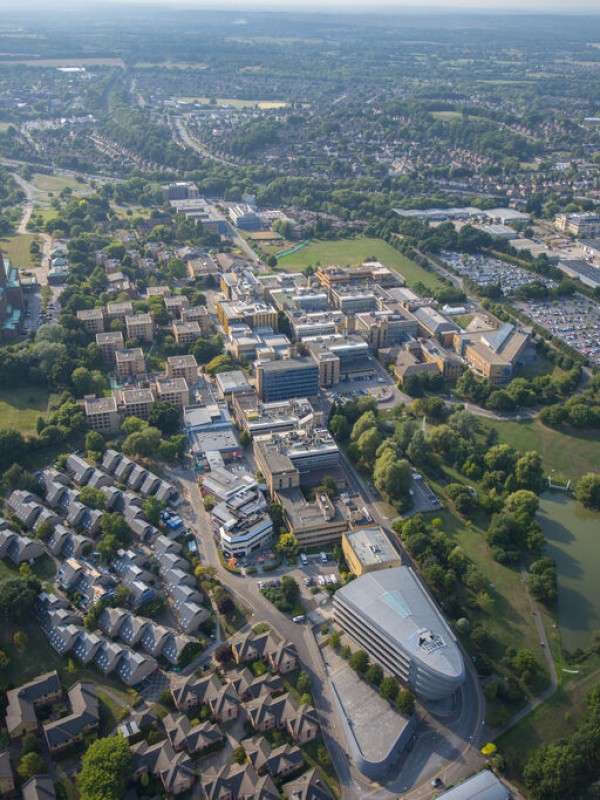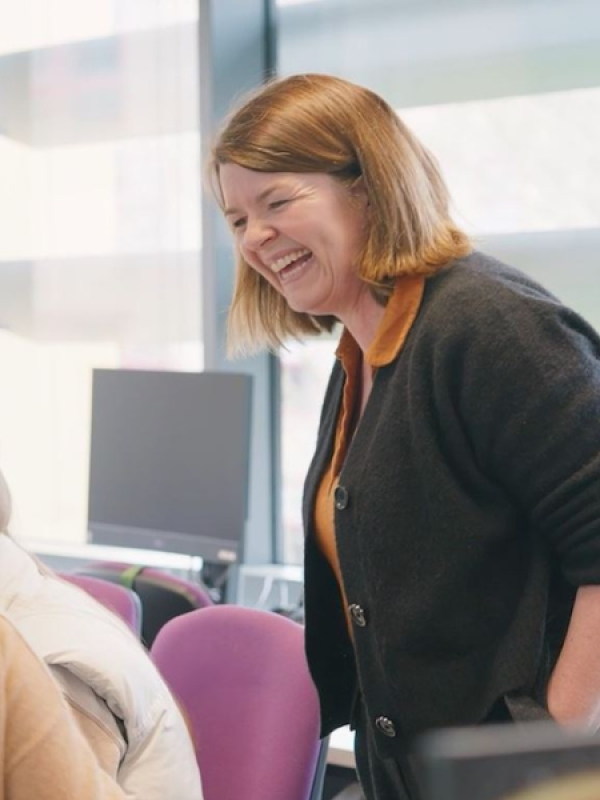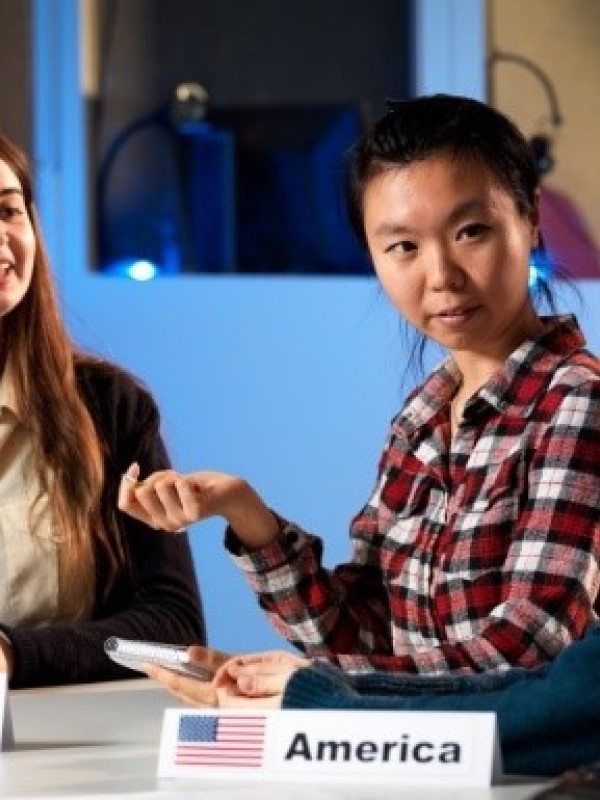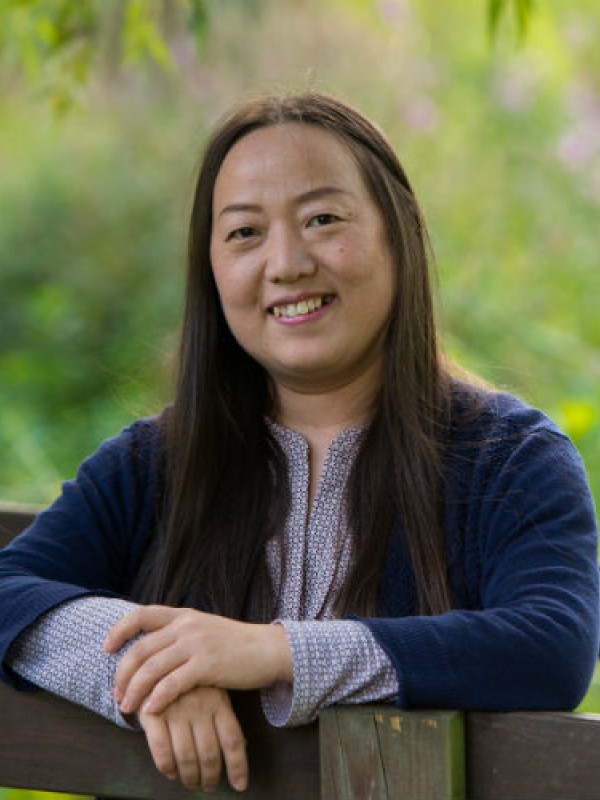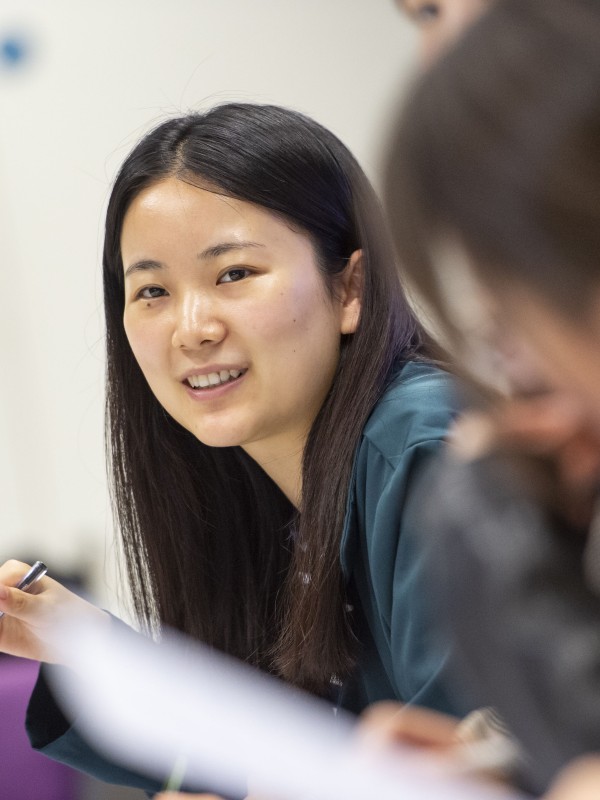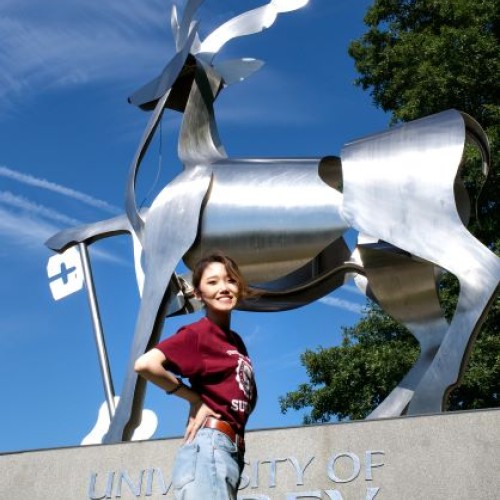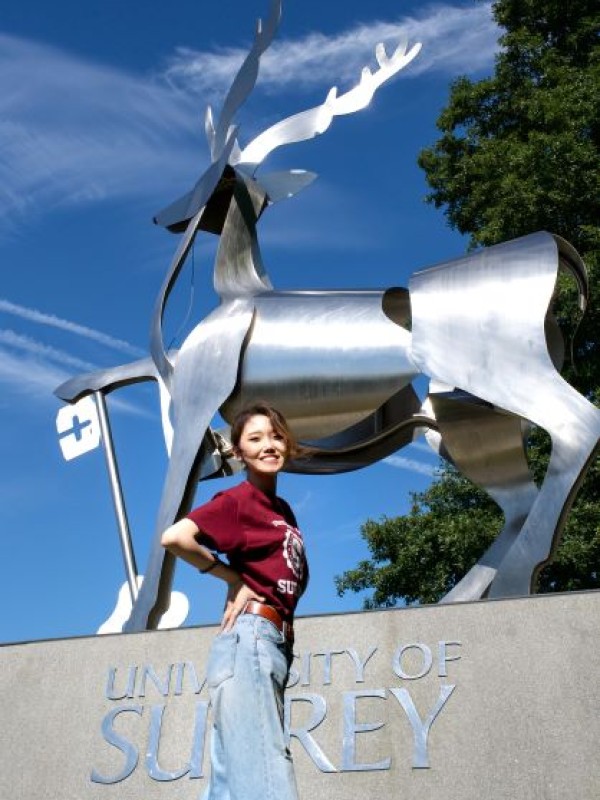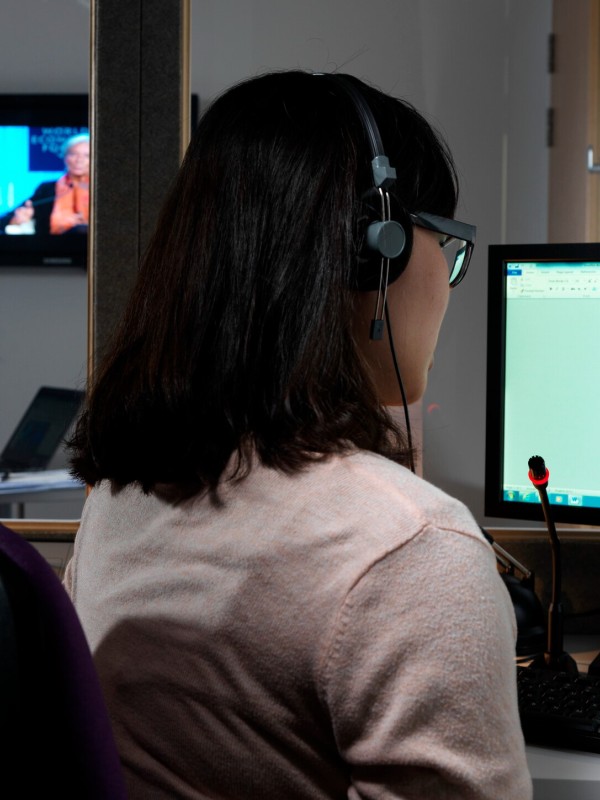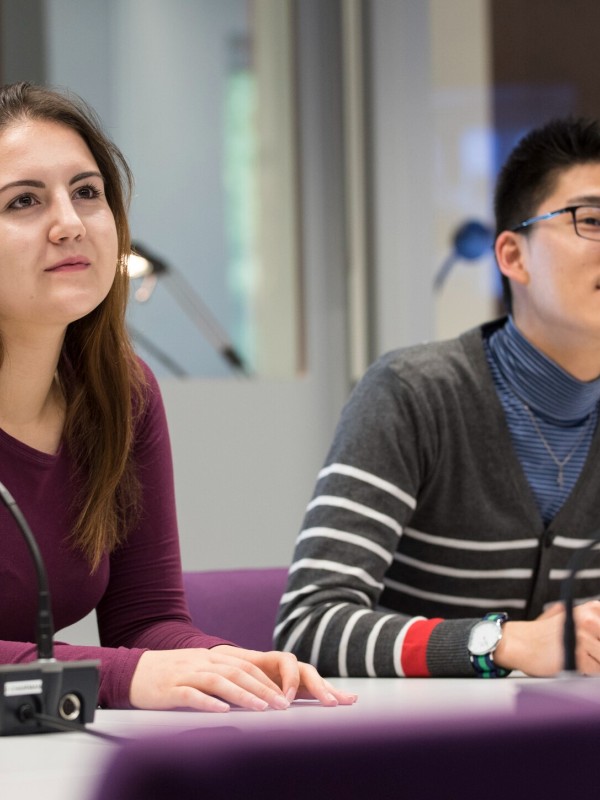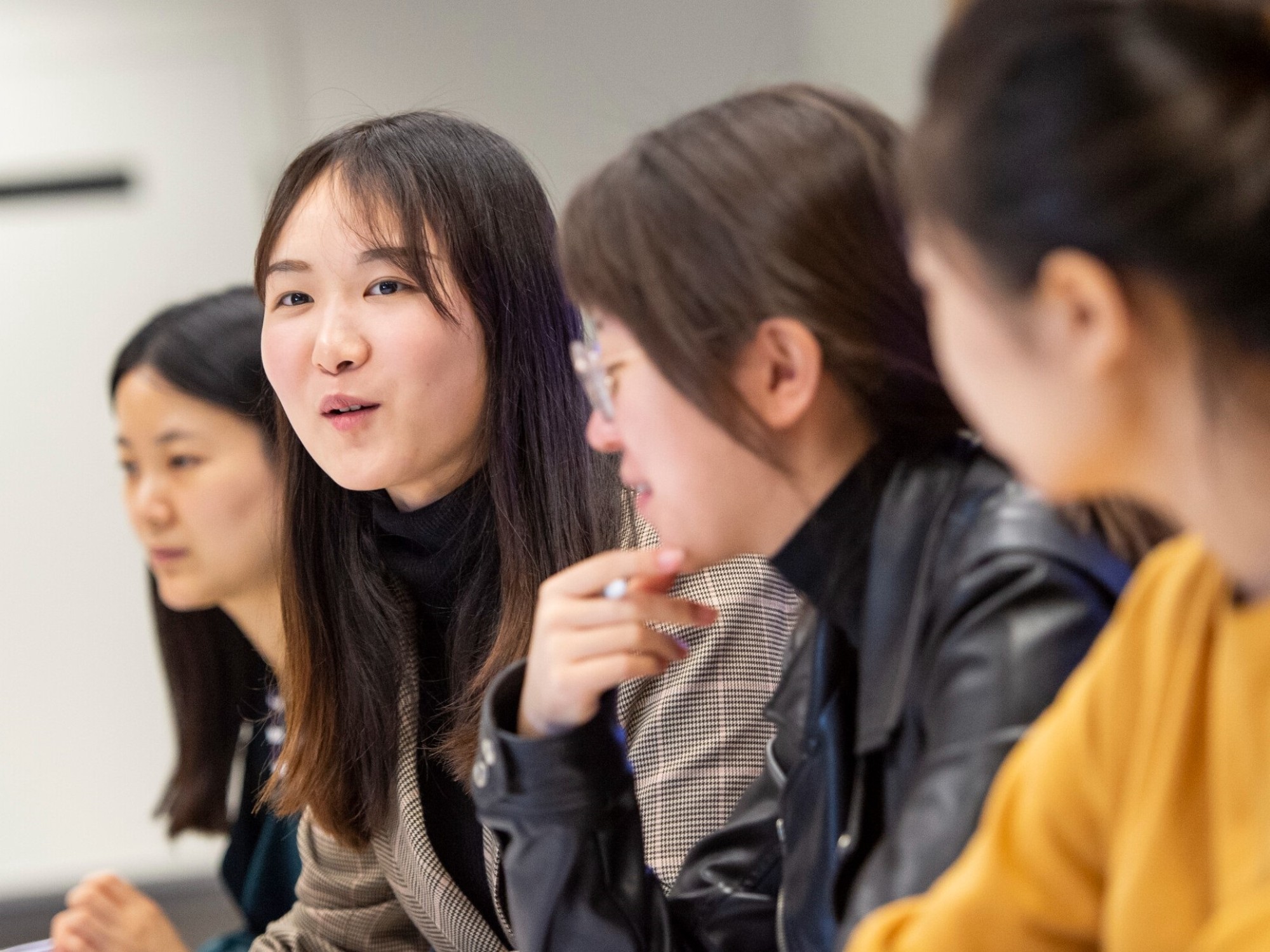
- Interpreting, Technology and AI (Chinese pathway)
MA — 2026 entry Interpreting, Technology and AI (Chinese pathway)
Globalisation has created new demand for Chinese interpreting services to enable knowledge exchange, trade, diplomacy, and business communication. This course is delivered in collaboration with KL Communications Ltd, a top UK interpreting company led by Dr Kevin Lin OBE. It makes you highly employable by giving you advanced skills in consecutive, simultaneous, dialogue, and distance/remote interpreting and in the use of cutting-edge AI language technologies to meet market needs.
4,138+ people have created a bespoke digital prospectus
Why choose
this course?
- Taught in collaboration with KL Communications Ltd, whose Managing Director, Dr Kevin Lin OBE, is the Lead Interpreter (Chinese) for the UK government’s Foreign Office, a successful business leader and experienced trainer.
- Based around a strong practical component that responds to the evolving needs of the Chinese interpreting market.
- Encompasses technological innovation reshaping the industry, especially in audio/video-mediated remote interpreting and AI-driven technologies that support interpreting and interpreter preparation (speech technologies and generative AI such as ChaGPT), with the Centre for Translation Studies (CTS) recognised as a leading centre of excellence in interpreting and technology research.
- Provides exceptional opportunities for gaining industry-relevant interpreting experience, training you to be ready for your first conference interpreter job upon graduation.
- Supports internships and career development activities, enabling you to collaborate with language service providers and build a professional engagement portfolio that you can present to future employers.
Statistics
100%
Of our literature and languages graduates go on to employment or further study (Graduate Outcomes survey 2025, HESA)
10th for research impact
Literature and languages is ranked 10th for research impact in the Research Excellence Framework (REF) 2021
What you will study
Our course covers the main principles, techniques and professional requirements of interpreting between Chinese and English, preparing you to work as an interpreter in conference, business and political settings.
You will develop skills in all interpreting modes (consecutive, dialogue and simultaneous interpreting, and sight translation) and practice both on-site interpreting and remote/distance interpreting via audio/video link as well as note-taking and public speaking. Guided by Dr Kevin Lin and his team of professional interpreters, alongside experienced academics at Surrey’s Centre for Translation Studies (CTS), you will cover a variety of specialisms (e.g., business, legal, scientific, technical and medical domains), as you develop a solid grounding in the linguistic, cognitive, quality-related, social and ethical dimensions of interpreting.
Uniquely, our course emphasises the integration of cutting-edge technologies into the interpreting workflow, for example, to support the interpreter’s preparation and real-time performance (such as electronic glossaries, digital note-taking, automatic speech recognition, machine translation and generative AI) and the delivery of interpreting services (audio/video-mediated distance/remote interpreting). This provides you with the necessary digital skills to develop a successful interpreting career in a fast-changing world and work environment. The Centre for Translation Studies (CTS)’ leading expertise in interpreting technologies will enable you to integrate different tools effectively and responsibly in your interpreting practice.
Flexible learning
The Professional Translation Practice module engages students in practical workshops for translating specialised texts, whilst our optional modules allow you to customise your learning experience according to your own strengths, personal interests and career ambitions.
Your dissertation will enable you to consolidate the knowledge and skills acquired during the taught components. You will be able to choose between a topic-based dissertation or an extended interpreting project with an analytical commentary. The dissertation is also one of the many ways of getting involved in ongoing research at CTS.
We regularly have students who decide to stay on for a PhD and pursue an academic career in translation and interpreting studies. For further information, see our PhD course.
Available prizes
During your studies, academic and professional excellence will be rewarded with the following prizes:
- RWS Campus Top Student Award (two Trados licenses)
- Project management training (one free-of-charge place in the Pro PM Training and Certification Programme)
- Professional Engagement Portfolio Prize
- Best Performance in Translation Prize.
Professional development
Our MA in Interpreting, Technology and AI (Chinese pathway) is designed to help you develop the interpreting, technological, business, interpersonal and essential soft skills needed for a successful career in the language services industry.
You will practise interpreting working from English into Chinese and from Chinese into English, guided by professional interpreters, who simulate real-world scenarios. With our expertise in interpreting technologies, our graduates are well prepared to succeed in today’s interpreting and technology markets, adapt to emerging modes of language services provision and meet future market needs.
Through regular seminars with guest speakers (e.g., translators, interpreters, users of language services and researchers), you will gain further insights into the profession and the latest interpreting research. Our annual CTS careers fair connects our MA students with local and international language service and technology providers, supporting professional networking, while work placements provide first-hand industry experience.
You will receive guidance on developing a professional engagement portfolio to help you build a professional CV as you study. This includes documenting your collaborations with language services providers (e.g., work placements, volunteer interpreting) and other extra-curricular activities (such as joining a professional association or attending a professional development workshop).
To test and develop your skills and strategies in an authentic work environment, you will be provided practical interpreting traineeship opportunities, including an opportunity to attend booth practice at the International Maritime Organisation (IMO), a specialised agency of the United Nations. During the study visit, you will practise simultaneous interpreting in a realistic UN-standard conference booth and will be instructed by experienced interpreters working at IMO.
We have established an annual internship programme with one of the largest translation and interpreting service providers in China: Lan-bridge Group. Each year, students in our programme can apply for the internship and, if selected, the majority will travel to China to work.
Students will either complete an accumulative 10 days of interpreting assignments from Lan-bridge (spread across several months), or six months of an internship period. Through this programme, students will be guaranteed opportunities to take on real interpreting assignments and gain practical experience. Students can also choose to arrange their own internship in the UK.
In addition, our students have provided interpreting services for regular clients of KL Communications Ltd, as well as for many multilingual events at the University, including graduation ceremonies and specialised conferences.
Industry links
We have forged close links with the main professional bodies in the language industry. For example, we are part of the prestigious Higher Education Partnership of the Chartered Institute of Linguists (CIOL) and a corporate member of the Institute of Translation and Interpreting (ITI). You can join these bodies as a student member during the course and become a full member after you graduate.
We also collaborate with the Translation Automation User Society (TAUS), the European Language Industry Association (ELIA), and the Globalization and Localization Association (GALA), which enables you to apply for a work placement with various translation and interpreting partner companies. We have close links with many language service providers, and have an extensive network of visiting professionals, so you will benefit from excellent connections and be taught to industry standards.
The MA Interpreting, Technology and AI (Chinese pathway) course is studied over one year (full-time only).
The taught part of the programme is divided into eight 15-credit modules. A 15-credit module is indicative of 150 hours of learning. The hours of learning comprise of contact hours, guided learning and private study.
The MA Interpreting, Technology and AI (Chinese pathway) course has six compulsory modules, and you must select another two optional modules. Our varied offer of optional modules will enable you to tailor the programme to your personal strengths and preferences.
You will complete your degree with a dissertation (60 credits), to be submitted at the beginning of September. You can choose between three types of dissertation:
- A topic-based dissertation
- An extended interpreting and analytical commentary
- A critical report of a skills enhancement programme (such as a summer school or similar).
The structure of our programmes follows clear educational aims that are tailored to each programme. These are all outlined in the programme specifications which include further details such as the learning outcomes:
Modules
Modules listed are indicative, reflecting the information available at the time of publication. Modules are subject to teaching availability, student demand and/or class size caps.
The University operates a credit framework for all taught programmes based on a 15-credit tariff, meaning all modules are comprised of multiples of 15 credits.
Course options
Year 1
Semester 1
Compulsory
This module lays the foundation of a career in Consecutive Interpreting. It enables students to acquire the principles of consecutive interpreting and to practise consecutive interpreting between Chinese and English in a variety of business and political situations. The module focuses on unilateral situations (e.g. speeches) and bilateral situations (dialogues), providing students with the practical skills and knowledge required to perform consecutive interpreting effectively and confidently.
View full module detailsThis module enables students to acquire the principles of simultaneous interpreting and to practise simultaneous interpreting between Chinese and English. The module covers unilateral and bilateral situations, and provides students with the practical skills and professional knowledge required to perform simultaneous interpreting at entry level.
View full module detailsThis module introduces students to professional translation practice. Taking a holistic approach to translator education, students engage in regular, practical translation workshops in which they are encouraged to translate different types of texts and reflect critically on the principles and challenges of contemporary translation. Covering different types of professional assignments, including specialized terminology research, translation for different purposes and audiences, and proofreading and editing, the workshops enable students to engage critically with the quality of professional human translation; this will prepare students for professional translation practice, including post-editing and evaluation of machine-translation and artificial -intelligence (AI) solutions. The workshops are led by practising translators and include translation practice in language-specific and multilingual groups. The languages we regularly offer include: Arabic, Chinese, French, German, Greek, Italian, Korean, Polish, Norwegian, Portuguese, Romanian, Russian, Spanish, Swedish and Turkish, all paired with English. Other languages are available upon request (please ask). All languages are subject to demand and tutor availability. Close alignment with the module ‘Principles and Challenges of Translation and Interpreting’ enables students to confront a wide range of issues, equipping them with both a solid grounding in the guiding principles that underpin the discipline and the strategic competences required to engage in best practices in the profession. As part of the module, students begin to compile a Professional Engagement Portfolio based on additional profession-oriented activities undertaken independently with guidance; these activities are gradually documented during the academic year and then formally assessed and, for instance, typically include participation in workshops, talks and seminars organised by professional associations as well as additional training or work related to the programme.
View full module detailsThis module provides students with a systematic framework for understanding key concepts in Translation and Interpreting Studies and how they relate and apply to the rest of the programme and to everyday professional practice. The module enables students to confront a wide range of translation and interpreting challenges, from the lack of equivalence between languages and cultures to contemporary technological, ethical and societal issues affecting translation and interpreting practice, including the rapidly evolving use of machine translation and artificial intelligence (AI). The module equips students with both a solid grounding in the guiding principles of translation and interpreting, derived from scholarly engagement with the discipline, and the strategies required to engage in best practices in the profession and future career development. Taking a holistic approach to translator and interpreter education, the module consists of lectures and seminars that discuss the main principles and challenges of translation and interpreting, and explore solutions in close alignment with other modules in the programme. Students complement lectures and seminars with practical exercises and independent reading.
View full module detailsOptional
This module builds on Collaborative Principles (Level 4) and Screen/Acting Fundamentals (Level 5) and offers opportunities for students to gain confidence in a range of media, including (but not limited to) TV, radio, voice-over, motion-capture, gaming, film and live solo performance. The module also brings students into working collaborations with digital industry creatives, filmmakers, agents, directors and actors working in different live, audio and digital media. Live performances of short monologues will be shared with agents at a special industry event. Showreels will be scripted and shot by freelance creatives, before being edited by students.
View full module detailsSemester 2
Compulsory
This module builds on the module “Consecutive Interpreting I” and focuses on the advanced practice of consecutive interpreting between Chinese and English in high-level business and political settings. It covers different types of speeches and bilateral situations, speeches with visual aids and persuasive source texts, providing students with advanced skills and practical knowledge to perform interpreting tasks professionally and confidently to a high standard.
View full module detailsThis module builds on the module “Simultaneous Interpreting I” and focuses on the advanced practice of simultaneous interpreting between Chinese and English in high-level business and political settings. The module takes place in professionally equipped, ISO-certified simultaneous interpreting labs and covers different types of unilateral and bilateral situations, providing students with advanced skills, strategies and practical knowledge to perform simultaneous interpreting tasks professionally and confidently in a variety of relevant communicative situations.
View full module detailsOptional
This module introduces students to the principles and practical implications of using different technologies in the interpreting profession. It addresses the impact of technology on the interpreting process and product, and on the delivery of interpreting services in the 21st century. The module explores the use of technological tools and resources such as electronic corpora and databases for background research and preparation, the role of communication technologies such as videoconferencing to support different modalities of remote interpreting (distance interpreting), the use of artificial intelligence (AI)-powered tools and techniques such as natural language processing (NLP), automatic speech recognition (ASR) and machine translation (MT) to support interpreters before and during assignments. The module also discusses the implications of machine interpreting (speech-to-speech translation).
View full module detailsThis module builds on the work of the Professional Translation Practice I module, by extending the approach of a connection between theory and practice to a connection between technology and practice. The module presents a sequence of themes related to the role of technology in translation, including the role of AI-powered tools such as neural machine translation and generative AI, recognising their different applications in translation and providing students with a growing perspective of the uses of technological tools to solve different professional translation challenges. The module focuses on several dimensions of tasks and roles translators need to perform in professional contexts. These are explored in a combination of language-specific and multilingual translation workshops and technology workshops, so that students have regular opportunities for hands-on practice and guidance from professional translators and experienced members of staff. As in semester 1, the languages we usually offer include: Arabic, Chinese, French, German, Greek, Italian, Korean, Polish, Norwegian, Portuguese, Romanian, Russian, Spanish, Swedish andor Turkish, all paired with English. Other languages are available upon request (please ask). All languages are subject to demand and tutor availability. As part of the module, students also continue to work on their Professional Engagement Portfolio from semester one (see Professional Translation Practice I).
View full module detailsIn this module students learn about the distinctive features of multimodal translation, such as subtitling, dubbing, audio description and live subtitling. The module introduces students to the main challenges in each mode of audiovisual translation across a variety of genres, such as film, documentaries and video games. As such, the module will combine tutor-led components and components with a prominent practical element.
View full module detailsThis module introduces students to the professional dimension of the different fields of Public Service Interpreting and Translation (PSIT). It covers current issues such as the specific ethical requirements, codes of conduct, working conditions and legislation associated with PSIT, as well as new trends in a constantly evolving industry and their repercussions on the PSIT landscape.
View full module detailsSemester 1 & 2
Compulsory
This module is designed to enable students to consolidate and further advance the knowledge and skills acquired during the taught components of the programme, and gain experience working independently on an extended project through one of the following options: Research on a Translation or Interpreting Studies topic and a written dissertation An extended translation with an analytical commentary or an interpreting simulation with an analytical commentary A work placement of at least 150 hours accompanied by a critical report. If taking this option, it is the responsibility of students to find a professional placement approved by CTS (this includes volunteer translation and a range of ad hoc language-industry activities carried out during the academic year). CTS will support students in finding a placement through professional engagement portfolios, invited seminar talks and a dedicated language industries careers fair. A practical skills-enhancement programme of 60 hours or equivalent and a written report. If taking this option, the skills-enhancement programme can be either run by CTS (subject to availability and demand) or external. If external (e.g. a summer school run by another organization), the programme must be approved by CTS in advance
View full module detailsOptional modules for Year 1 (full-time) - FHEQ Level 7
Students choose 2 from 4 the listed optional modules.
Teaching and learning
The practice-based interpreting modules are taught by Dr Kevin Lin and his team, who will bring their interpreting expertise, workplace experience, high-end interpreting standards and up-to-date knowledge of the interpreting market into the classroom.
You'll be taught by experienced academic staff with excellent research records, who help you to develop a broad understanding of the current and future challenges of interpreting. For example, Professor Sabine Braun is a leading expert in the field of remote/video-conference interpreting. Other academic staff specialise in public service interpreting, interpreter-mediated interaction, and corpus-assisted translation and interpreting studies.
General course information
Contact hours
Contact hours can vary across our modules. Full details of the contact hours for each module are available from the University of Surrey's module catalogue. See the modules section for more information.
Timetable
New students will receive their personalised timetable during Welcome Week. In later semesters, at least one week before the start of the semester.
While we make every effort to ensure that timetables are as student-friendly as possible, scheduled teaching can take place on any day of the week (Monday – Friday). Our Translation Studies seminars take place on Wednesday afternoons – attendance is optional but strongly encouraged.
Please note that as our practice-based classes are normally provided by professional interpreters, we may sometimes have to reschedule classes to accommodate professional commitments.
View our code of practice for the scheduling of teaching and assessment (PDF) for more information.
Location
This course is based at Stag Hill campus. Stag Hill is the University's main campus and where the majority of our courses are taught.
We offer careers information, advice and guidance to all students whilst studying with us, which is extended to our alumni for three years after leaving the University.
Local and international companies from the language industry come to our Centre for Translation Studies careers fair to explain what current and future opportunities they have. This provides you with a chance to engage with them directly and kick-start your career in an informal, friendly atmosphere.
Our emphasis on professional development, which includes participating in simulated classroom activities for remote interpreting and attending booth practice at IMO, means that you'll be well-equipped to begin work as an executive interpreter or Chinese communication expert at international organisations, government bodies and private companies. There’s strong international demand for excellent interpreters in Chinese and English.
As a student, you will have classes in our dedicated language-software computer lab and state-of-the-art interpreting labs. Our facilities will allow you to practise each interpreting mode in the most realistic environment. You'll have access to:
- Two conference interpreting suites equipped with ISO-approved double interpreting booths, as used by international institutions, to practise simultaneous interpreting
- A portable interpreting system for training in mobile interpreting (used for museum or factory tours)
- A two-way and multipoint videoconferencing system to simulate remote or distance interpreting in consecutive/dialogue interpreting mode, with delegates and interpreters interacting over video link
- A cloud-based remote simultaneous interpreting platform.
You will work hands-on with cutting-edge software for computer-assisted translation, subtitling, terminology extraction, speech recognition and corpus linguistic tools, such as:
UK qualifications
A minimum of a 2:2 UK honours degree in English or a related subject.
You must be a native Chinese speaker to apply. We may be able to take relevant work experience into consideration if you don't meet these requirements. If you have at least one year of relevant experience in a full-time graduate-level role (or a minimum of two years’ experience in a relevant graduate-level part-time role) please provide full details of your role and responsibilities in your personal statement and CV when you submit your application.
English language requirements
IELTS Academic: 6.5 overall with 6.5 in writing and speaking and 6.0 in each other element.
Alternatively, if you have successfully been awarded the Certificate of Excellence offered by our partner, KL Communications, and had an IELTS of 6.0 overall with 6.0 in each category before you took this course, and this IELTS will still be valid for the start of the MA, then you will not need to take another IELTS.
These are the English language qualifications and levels that we can accept.
If you do not currently meet the level required for your programme, we offer intensive pre-sessional English language courses, designed to take you to the level of English ability and skill required for your studies here.
Selection process
Suitable applicants will be invited to take a written test and participate in an interview via Skype or Zoom.
Applicants who have successfully obtained a Certificate of Excellence will not be required to do this.
Recognition of prior learning
We recognise that many students enter their course with valuable knowledge and skills developed through a range of ways.
If this applies to you, the recognition of prior learning process may mean you can join a course without the formal entry requirements, or at a point appropriate to your previous learning and experience.
There are restrictions for some courses and fees may be payable for certain claims. Please contact the Admissions team with any queries.
Scholarships and bursaries
Discover what scholarships and bursaries are available to support your studies.
Fees per year
Explore UKCISA’s website for more information if you are unsure whether you are a UK or overseas student. View the list of fees for all postgraduate courses.
September 2026 - Full-time - 1 year
- UK
- £11,300
- Overseas
- £22,700
- These fees apply to the academic year 2026-27 only. Fees are reviewed annually, and tuition fees may increase for courses running over more than one year.
Payment schedule
- Students with Tuition Fee Loan: the Student Loans Company pay fees in line with their schedule (students on an unstructured self-paced part-time course are not eligible for a Tuition Fee Loan).
- Students without a Tuition Fee Loan: pay their fees either in full at the beginning of the programme or in two instalments as follows:
- 50% payable 10 days after the invoice date (expected to be October/November of each academic year)
- 50% in January of the same academic year.
- Students on part-time programmes where fees are paid on a modular basis: cannot pay fees by instalment.
- Sponsored students: must provide us with valid sponsorship information that covers the period of study.
The exact date(s) will be on invoices.
Funding
You may be able to borrow money to help pay your tuition fees and support you with your living costs. Find out more about postgraduate student finance.
Apply online
To apply online first select the course you'd like to apply for then log in.
Select your course
Choose the course option you wish to apply for.
Sign in
Create an account and sign into our application portal.
Please note that we may have to close applications before the stated deadline if we receive a high volume of suitable applications. We advise you to submit your application as soon as it is ready.
ApplyAdmissions information
Once you apply, you can expect to hear back from us within 14 days. This might be with a decision on your application or with a request for further information.
Our code of practice for postgraduate taught admissions explains how the Admissions team considers applications and admits students. Read our postgraduate applicant guidance for more information on applying.
About the University of Surrey
Need more information?
Contact our Admissions team or talk to a current University of Surrey student online.
Terms and conditions
When you accept an offer to study at the University of Surrey, you are agreeing to follow our policies and procedures, student regulations, and terms and conditions.
We provide these terms and conditions at offer stage and are shown again at registration. You will be asked to accept these terms and conditions when you accept the offer made to you.
View our generic registration terms and conditions (PDF) for the 2025/26 academic year, as a guide on what to expect.
Disclaimer
This online prospectus has been published in advance of the academic year to which it applies.
Whilst we have done everything possible to ensure this information is accurate, some changes may happen between publishing and the start of the course.
It is important to check this website for any updates before you apply for a course with us. Read our full disclaimer.
